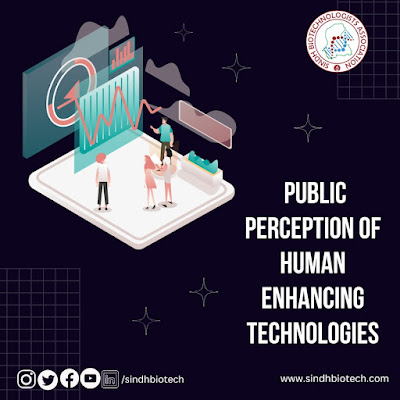Bioethics: ethical issues concerning medicine
INTRODUCTION: Bioethics is a multidisciplinary branch of study that examines the ethical, legal, philosophical, and social implications of advances in life sciences and medicine. Its responsibility encompasses not only issues regarding possible courses of action in response to such developments, but also interpretations of concepts like "life," "death," and "person," as well as questions concerning the consequences for how we define human life in changing social situations. Many bioethical challenges, such as variations in life expectancy, access to resources, and the problems created by pandemics, have a worldwide aspect, raising concerns about the viability of a global bioethics.[1] (EVANS.2001)
ETHICS is that the rational reflection on what's right, what's wrong, what's just, what's unjust, what's good and what's bad in term of human behavior. Some Ethical Principles are:
· Truthfulness.
· Honesty.
· Loyalty.
· Respect.
· Fairness.
· Integrity.
BIOETHICS: it is the observation and study of ethical issues emerging from advances in biology and medicine. It is also moral discernment as it’s relates to medical policy and practices.[2] (TALBOT 2012)
FOUR PRINCIPLES OF BIOETHICS:
The main 4 ethical principles are:
1. Beneficence. (Kindness)
2. Non-Maleficence. (Do not Know)
3. Autonomy. (Self-Government)
4. Justice. (Giving everyone what he or she deserve)
HISTORY: Medical ethics came before bioethics, and it was largely concerned with complaints resulting from the physician–patient interaction. The ancient Hippocratic literature (the Hippocratic Oath) enjoins doctors to use their knowledge and powers to help the ill, to heal rather than damage, to protect life, and to retain in strictest confidence information that should not be disseminated around
These fundamental ideals and concepts continue to be an important component of current bioethics. Following World War II, it became obvious that traditional medical ethics were unable to handle modern challenges.
The Origins of the Term "Bioethics”: Biologists coined the term bioethics in the early 1970s to encourage public and professional reflection on two pressing issues:
1) the responsibility to maintain the planet's generative ecology, on which life and human life depend
2) The long-term consequences of fast advancements in bio sciences for possible changes in a flexible human nature
BIOETHICAL ISSUES: Some issues about which bioethics concerns itself:
- Physical patient relationship.
- Death and Dying.
- Resource Allocation.
- Assisted reproductive techniques and their uses.
- Genetic testing and screening.
- Sexuality and Gender.
- Environmental Ethics.
- Clinical research ethics.
- Disability issues.
- Consent, vulnerability, and/ or coercion.
- Mental health illness, treatments, and care for patients.
- Ethical treatment of research subjects in clinical trials.
- Ethical treatment of animals.
BIOETHICAL ISSUES IN BIOTECHNOLOGY:
Ethical issues that arise from modern biotechnology include the accessibility and use of privileged information, its potential towards ecological harm, access to new drugs and therapy and the changes caused due to interfering with nature. Applications include agriculture and health care.
BIOETHICAL ISSUES IN RESEARCH:
· A person may have a personal, religious, or ethical basis for refusing to participate in a specific operation.
· Priority should be specified before hiring.
· No one should be forced even the ethics of the employer must be consistent with the ethics of the health care practitioner.
· The benefits of all medical research must exceed the hazards.
· While working the researchers must adhere to specified testing criteria and allow Institutional Review Boards (IRBs) to observe at institutes that receive federal research money to oversee research.
· Full permission is required when a patient participates in therapeutic research.
· The patient must be informed of any hazards and any type of research design involved and the physician must report everything even if it causes the patient to withdraw.
· Physicians must follow certain norms or standards of professional behavior in their interactions with other physicians and patients.[2] (TALBOT 2012)
CONCLUSION:
Whether the emphasis is on ethical knowledge or ethical conduct, the focus on the individual health professional is a trait shared by all approaches mentioned thus far. Responding properly to unethical behavior by others, particularly whistleblowing, and being ethical in unethical situations have become as crucial as confidentiality and informed consent in curricular content terms. It is critical to comprehend concepts such as socialization, moral anguish, and danger. Most also believe that ethical conduct is determined by an individual's knowledge, abilities, and personal qualities: if these are properly taught, health professionals will act ethically.[3] (R.M.2019)
By: Marium Imran Mansuri
REFERENCES:
1) Bioethics: The View from Social Science, ells, 10.1002/047001590X, (1-6), (2001).
2) Talbot, M ,Bioethics: An Introduction, 9780521888332,https://books.google.com.pk/books?id=sKvzbs4mz1UC(2012)
3) Veatch, R.M., & Guidry-Grimes, L.K. (2019). The Basics of Bioethics (4th ed.). Routledge. https://doi.org/10.4324/9780429507519




Comments
Post a Comment